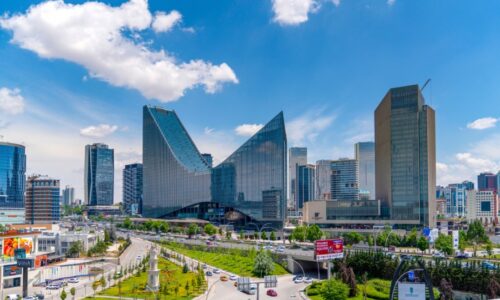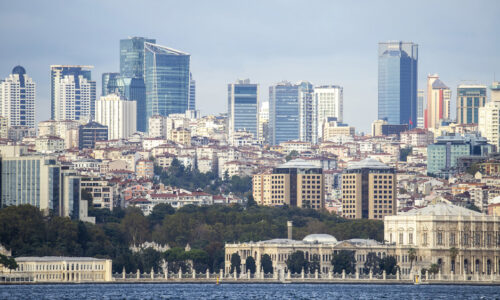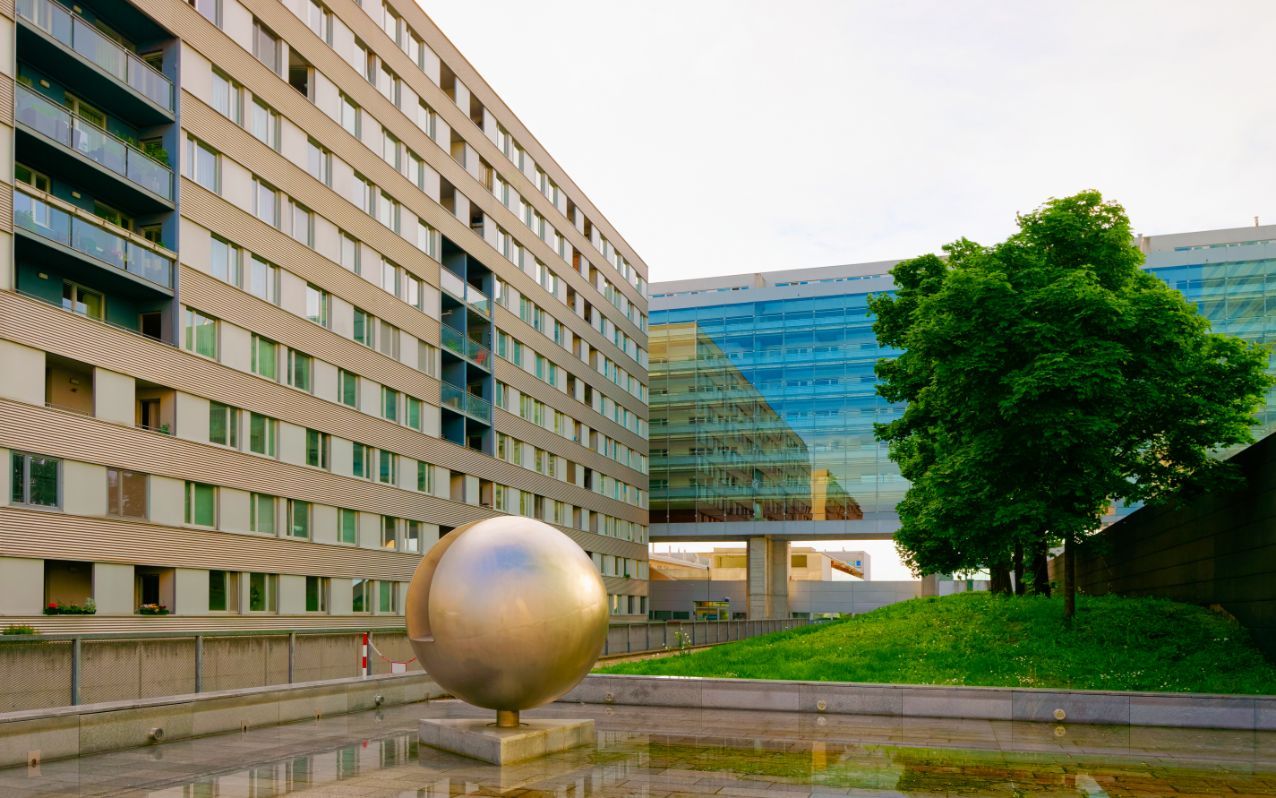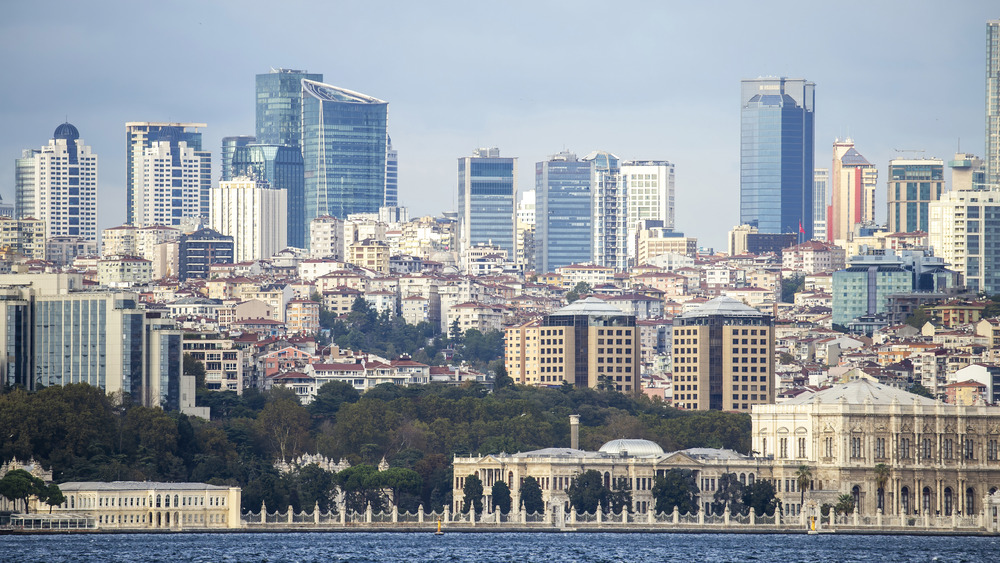Turkish Business Culture for Investors or Workers in Turkey
- MHRPartner
- Investment, Turkey
- 0 Comments
Mehmet Akif Özmen | MHR & Partners Chairman of the Board of Directors | Sworn in - CPA
There is a famous story about Turkey’s business world. I asked a Japanese entrepreneur who had done business with Turks what he had learned in Turkey. He replied, “One Turk is smarter than one Japanese, but two Turks are not smarter than two Japanese!” A Japanese proverb that points out that Turks are extremely talented in individual endeavours, but have poor partnership building practices.
Turkish business culture is full of different and interesting experiences for international investors. With the right approach and relationships, investing and working in Turkey can be very fruitful. Turkish society respects and sympathises with foreign investors who create jobs and earn foreign currency. Turkey does not distinguish between foreign and domestic investors in Turkey. Investment climate is friendly and encouraging.
For the business world, Turkish culture is very rich and diverse. Turkey attracts international investors with its geographical location, rapid economic growth and strong infrastructure. However, Turkish business culture and business practices can sometimes pose a challenging learning curve for foreign investors. In this article, we set out the salient elements of Turkish business culture to serve as a brief guide for foreign entrepreneurs and international investors looking to invest in Turkey.

Prominent Elements of Turkish Business Culture
History, geography, and belief codes influence business culture in Turkey. Turkey is an imperial country with deep-rooted historical connections. It has a multicultural sociology and ethnic diversity determined by being the cradle of hundreds of civilizations in the past, being located at the intersection of international migration routes (heartland), and having different geographical climates and landforms.
More than 90% of the population is Muslim. Turkey is a secular state. Tradition and modernity coexist. Turkish society is leader-orientated and likes collective action. Turkey has a rich upper class. There is also a growing middle class. The business world is characterized by numerous educated and well-trained executives who are open to the world. Turkey’s talent infrastructure is constantly developing.
Tim Bright, who has worked as a mentor and management consultant in Turkey for many years and was a member of the Board of Directors of the British Chamber of Commerce in Turkey – BCCT, shares his observations on Turkish business culture as follows: “Business people in Turkey are always open to new ideas and hardworking. They always treat foreign guests, investors, and business people with respect and hospitality. However, it may take time to establish mutual trust. However, once trust is established, it is not easily shaken. Turkish society values team spirit over individualism. Business is dominated by modern understanding and traditional values.”
Stating that companies are very successful in crisis management and that they mostly prefer short-term plans, Bright lists the keys of Turkish business culture for foreign investors who want to do business in this country as follows: Power distance is high, sense of belonging is strong and social relations are very important.
“Turkish business culture reflects society’s characteristics stemming from its cultural, historical, and social structure. Turkish businesspeople are generally sincere, warm-hearted, and hospitable and values human relations. Business negotiations in Turkey are based on personal relationships and trust. Foreign investors need to understand these dynamics and act accordingly to gain a foothold in the Turkish business world.”
Below, we summarize the main dynamics of Turkish business culture that are salient and frequently encountered in daily life. Cultural elements, like any social phenomenon, are difficult and inaccurate to generalize to all individuals or a particular community. Any explanation that attempts to explain large social structures and behaviors is an abstraction and inherently incomplete.
Discover Our Services
VAT Refund
Service
Over 200 customers and over 1000
return reports in 10 years
Full Certification
Audit
Beyond a full certification audit
Risk-focused tax planning
Family structure: A key aspect of the Turkish business world is its strong family structure. The family is the cornerstone of Turkish society and also influential in the business world. Companies are often run by families and it is imperative for families to work together and get along with each other.
Turkish family structure has patriarchal tendencies. This patriarchal structure evolves with modernization. Women’s place in social life is increasing, especially in metropolises. Although they do not take their rightful place in the business world, women are extremely influential in the Turkish family structure.
Turkey’s business culture is quite different due to the family structure’s reflection on business life. Family and kinship ties create trust and loyalty in the business world, but can also make objective decision-making difficult.
Communication: In Turkish business culture, direct and open communication is not expected. Indirect statements and insinuations are common. For foreign investors, this creates difficulties in decision-making, but obstacles can be overcome by communicating with an understanding approach.
In Turkish business culture, welcoming each other and chatting briefly before business negotiations makes negotiations take place in a warm environment. It is considered cold to talk about business directly.
Communication between business people in Turkey is very warm and sincere. While employees communicate via e-mail or telephone, they are also expected to contact personally. This helps to further strengthen relationships between people. Once a solid relationship is established, direct communication is preferred. As e-mails are usually slow to answer, telephone calls are used to speed things up whenever possible.
School and military friendships and fellow countrymen are the leading social networks among Turks.
People in Turkey do not confide in people they are not intimate with and do not like being asked questions about their private lives. They require a certain level of formality to be maintained. Be especially careful not to ask questions about people’s spouses and children.
Turks are very honorable and value international prestige. Their patriotic and religious feelings are very strong. They care about emotions. These sensitivities can be considered a red line in bilateral relations and communication.
An investor who wants to do business in Turkey is advised not to bet on 3 sensitive issues in business negotiations. These are religion, politics, and football.
Language: Turkey’s official language is Turkish. Turkish is widely spoken by the public and businesses. After Turkish, Kurdish is also extensively spoken in daily life, especially in Eastern and Southeastern Anatolia. After the Syrian war, more than 3 million refugees fled Turkey. This made Arabic the third most widely spoken language. Today, many businesses in Turkey have started to include Arabic language options on their websites and telephone greeting menus.

Greetings: Greetings in Turkish business culture are a critical start to successful communication. One of the most important reasons for resentment is not greeting people when they meet. “Sir” (Mr. Ahmet) for men and “Madam” (Mrs. Ayşe) for women is a very common form of address in the business world. It is considered impolite to address someone with whom you do not have a cordial relationship by their first name. Eye contact in communication is extremely significant.
Turks are warm-blooded nations. On the first encounter, a handshake is valued. In some regions, handshake is not considered sufficient, so do not be surprised if you see encounters in the form of hugs. It is best behavior to wait for your interlocutor to extend his hand first, especially when shaking hands with women who wear headscarves.
Business Lunches: Business lunches are very important in Turkish business culture. Business meetings or dining out with business partners can strengthen relationships. Don’t be surprised if many deals are settled at business dinners. Hospitality and hospitality are ingrained in Turkish business culture. For this reason, it is common to take people with whom you have business relationships to dinner. Rejecting a dinner invitation is unacceptable.
It should be noted that gifts should not contain pork products or alcohol. Again, many Turkish business people may not prefer to eat at alcohol-filled places. Knowing these sensitivities in advance prevents communication accidents in business relations.
Business attire: In Turkey, work attire is generally formal and conservative for white-collar workers. Casual dresses for men and low-cut clothing for women are not preferred. Lately, the tendency not to wear a tie and to come to the workplace with free clothes on Fridays has increased along with the world. Freelance dress codes are common in some business lines, such as software, marketing, and academia.
Time perception: Turkish business culture has innate flexibility and is often expected to adapt to flexible schedules. For example, precise times are often not given for business appointments. Job interviews usually take longer and are not strictly scheduled. This situation may create difficulties for foreign investors, but this flexibility also creates opportunities.
Reading Advice
What are the types of companies in Turkey? What does it take to set up a company and open a branch in Turkey? Where should foreign entrepreneurs start setting up a company in Turkey? Do a deep reading for the answers to all these questions!

Negotiation: In Turkish business culture, negotiations can be long and concluded in more than one meeting. We advise foreign investors to be patient and proceed step by step. Business requires compromise and mutual benefit. Highlight the benefit for both parties and the profitability of the partnership. Consider benefits such as potential prestige, influence, and power alongside sales profitability.
When presenting your proposal, make sure it is clear, well-presented, and concise. It is a wise idea to supplement the information with visual examples (for example, graphs, maps, diagrams) as Turks generally communicate more effectively both visually and verbally. It’s also critical to keep what’s promised and be reliable.
Bargaining: Bargaining is a strong tradition among Turks and they may take offense if you refuse to negotiate. “Everything can be bargained for” is a widely accepted belief. Turkish business culture expects initial prices should never be accepted.
Prices often move up to 30 percent in negotiations between initial offers and final decisions. Be prepared with multiple offers that work within this figure’s percentages. Have a goal in mind before entering the meeting and gradually make reasonable concessions.
Personal relationships: In Turkish business culture, business and personal relationships are often intertwined. Establishing a network of connections to do business is valued. Cordial relationships between business owners and managers help businesses move forward quickly and efficiently. A focus on relationships rather than tasks dominates Turkish business culture.
Turkish business culture values personal relationships. Establishing a sincere relationship is essential to doing business. This means that investors should first get to know the Turkish business world, build the right relationships with people, and build trust.
Reading Advice
It is so helpful to have a business plan ready to establish a company in Turkey, to invest or even get a residence permit.
Discover our article that guides you in this matter!

Written contracts: In Turkey, verbally agreed matters must be put into formal contracts. Documents in writing contracts are common in corporate companies. Smaller enterprises have a weak written contract culture. We recommend written agreements for the safe continuation of business relationships.
Business meetings: In Turkey, confirming meetings or negotiations a few days in advance facilitates planning. Turkey is quite common to drink tea or coffee during business meetings. This makes the business meeting more informal and helps business people get to know each other better. It is considered rude to rush people to achieve the meeting purpose.
If the meeting is one of the first meetings between business partners, its purpose is usually to get acquainted. Do not expect a decision in the first conversation.
Chewing gum at work, in meetings, and in job interviews is often considered off-putting and vulgar in Turkish business culture.
Recruitment and management: In Turkish business culture, recruitment and management are often based on personal contacts and references. This can create challenges for foreign investors, but also opportunities if appropriate networks are established.
Hierarchy: In Turkish business culture, hierarchy and authority are important. Decisions in the workplace are usually made by top managers and are expected to be obeyed. Managers are not used to having their views discussed and challenged. In addition, respecting older people and benefiting from their experience is valued. Respect for elders and authority is a vital component of Turkish business culture.

Teamwork: In Turkish business culture, values such as teamwork, cooperation and cooperation are often emphasized. Turks are a community with strong organizational ability and ability to mobilize resources quickly. As a result, they developed flexibility and the ability to adapt to challenging conditions. They make quick decisions and get quick results. A strong individuality does not stand out among them because they tend to be leader-oriented. In the Turkish business world, crisis management, handling difficult conditions, and flexibility are highly developed. In addition, the culture of long-term planning is weak. In addition, we see that they have difficulty complying with the rules.
Partnership: In the Turkish business world, foreign investors are encouraged to establish partnerships with local companies to do business. A local partner can better understand Turkish business culture and help foreign investors gain a foothold in the Turkish business world. Besides, partnering with Turks has its own difficulties. The culture of partnership, of achieving together and sharing, is weak. At times, emotions take precedence over rationality. They care about short-term gains and cost-oriented thinking dominates in places. Performance thinking comes later. We cannot generalize this situation for all business people, but many Turkish business entrepreneurs have unsuccessful stories about doing business together.
Work-life balance: In Turkish work culture, the distinction between workplace and private life is unclear. Some employers demand more from employees. However, recently, employees have expressed very strong demand for work-life balance. Generation Z and millennials and the digital age possibilities force Turkish business culture to change.
In addition, Turkish business culture is based on selfless work. Business people have busy working hours and strive to do their job in the right way possible.
Working hours: In Turkey, 45 hours per week are worked between 9:00 and 18:00 on weekdays, Monday to Friday. Lunch is common. Some businesses offer lunch to employees at their workplace.
Fridays, most men go to prayers. More than half of the population fast for 1 month during Ramadan. People who pray 5 times a day are not small. The days of Ramadan and EID al-Adha (3 and 4 days respectively) are public holidays. All these religious practices have reflections on business life and business culture.
After Covid, remote working became widespread among software developers and call center employees. Some large holdings have switched to remote and hybrid working models for those outside of these professions.
Special Days: Official days, religious holidays and special days are celebrated enthusiastically by the public in Turkey. It is very common to congratulate and share content on social media and private WhatsApp groups. They visit their relatives and graves during religious holidays. In some workplaces, they hold ceremonies as a group. It is customary to take gifts such as Turkish delight, chocolate, and baklava when visiting family during the holidays. Giving gifts on religious holidays and special days is appreciated and encouraged. On special occasions, enthusiasm, joy and warm interactions peak in business and social life.
Resources:
Dimensions of the Transformation of Turkish Business Culture in the Globalization Process
Turkish Business Culture – Zafer Parlar
What Can We Do For You?
As MHR & Partners, we are directly and indirectly active in more than 20 countries worldwide. We aim to operate with 10 branches in 100 countries in 10 years. We offer you end-to-end consultancy and support services in establishing a company, obtaining a residence permit, and in all operational processes abroad, primarily financial issues.
Our priority is to provide consultancy services to companies with a growth vision and business strategy abroad. We attach particular importance to the uninterrupted continuation of our services with the assurance of MHR & Partners (Mühür YMM AŞ) after the company establishment stages. Our core mission is to be a safe harbor and provide sustainable services.
We want to be a bridge to our customers’ business plans for growth and development, even in the most remote parts of the world.
To establish a business in Turkey or Europe (Germany, The Netherlands, Belgium, UK, Romania, Bulgaria, Montenegro), you can contact Sworn-in Certified Public Accountant Mehmet Akif Özmen directly (+90 542 830 3408 or akif.ozmen@mhrpartner.com).
You might like to see these contents also:
Related Posts

- MHRPartner
- 7 May 2023
Striking Headlines for Those Who Want to Invest in Turkey
Alper Şentürk | International Relations Turkey has a strategic location at the intersection o ..

- MHRPartner
- 31 August 2024
Establishing a Limited Company or Opening a Branch in Turkey
Mehmet Akif Özmen | Sworn Financial Advisor – CPA | Founder, CEO Establishing a company ..






